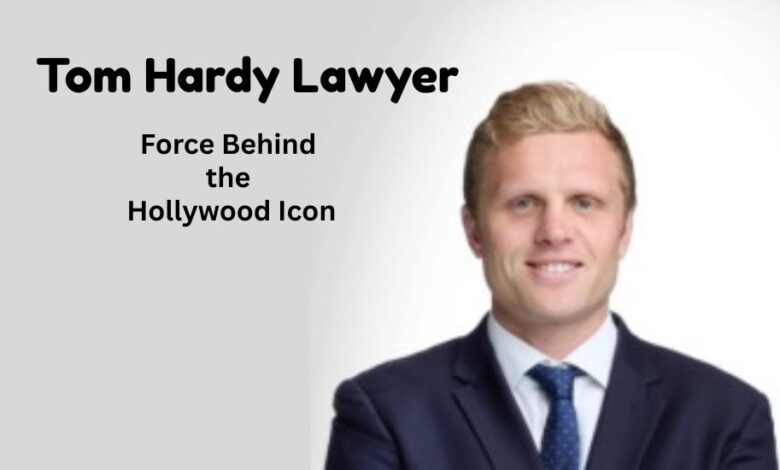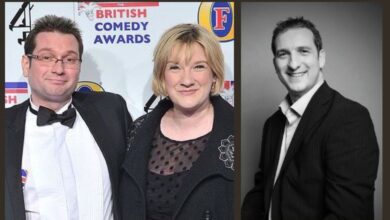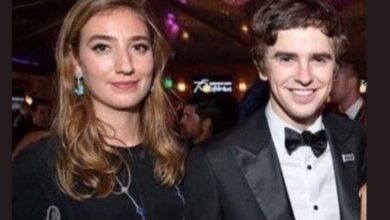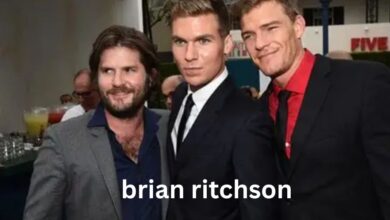Tom Hardy Lawyer: A Legal Force Behind the Hollywood Icon
Tom Hardy Lawyer: A Legal Force Behind the Hollywood Icon

When people search “Tom Hardy lawyer,” they often stumble upon articles, fan posts, and discussions that blend truth with assumption. The question naturally arises: is Tom Hardy a lawyer, or has he ever played one? While this phrase attracts curiosity, the truth lies in the distinction between Hardy’s real life and the cinematic worlds he inhabits.
Tom Hardy has never practiced law, nor does he hold a legal degree. Yet, the fascination with the term “Tom Hardy lawyer” persists because many of his on-screen roles deal with crime, justice, and moral ambiguity—the very elements that shape stories in legal dramas. This article explores the origins of this misconception, analyzes Hardy’s performances in roles that skirt the boundaries of the law, and dives deep into his life, filmography, and cultural significance.
The Misconception: Is Tom Hardy a Lawyer?
Tom Hardy is not a lawyer. There are no records or statements suggesting that he ever studied or practiced law. His background lies entirely in performance and film. However, the confusion isn’t random. Over the years, Hardy has portrayed characters so grounded in law-related and crime-driven narratives that many viewers associate him with the legal sphere.
What makes Hardy’s characters memorable is their constant confrontation with moral and legal dilemmas. From outlaws to detectives, soldiers to gang leaders, his performances often revolve around questions of justice, ethics, and authority. In this sense, the word “lawyer” symbolizes more than a profession—it reflects the thematic tone of his body of work.
So, while Hardy never donned a barrister’s robe, his on-screen choices make him one of the most symbolically “legal” actors in modern cinema.
Tom Hardy’s Legal and Law-Adjacent Roles
Although he rarely plays courtroom attorneys, Tom Hardy’s filmography is filled with stories steeped in law, order, and justice. His characters live within systems of corruption, conflict, and accountability—the same issues lawyers grapple with every day, albeit in different forms.
Lawless (2012) — The Rebel Against Corruption
In Lawless, Hardy portrays Forrest Bondurant, a bootlegger in Virginia during the Prohibition era. Bondurant is not a lawyer, but he stands in direct opposition to corrupt officials and the violent arm of the law. The film captures the constant battle between individual freedom and government control. Hardy’s quiet intensity and stoic resistance in the face of injustice make Forrest Bondurant a kind of anti-legal hero—a man governed by his own code.
Lawless exemplifies Hardy’s unique ability to embody a sense of justice outside the confines of formal legality. It’s precisely these portrayals that fuel public fascination with terms like “Tom Hardy lawyer.”
The Drop (2014) — The Man Entangled in Crime and Conscience
In The Drop, Hardy plays Bob Saginowski, a soft-spoken bartender caught in a criminal underworld. His role touches on themes of guilt, loyalty, and redemption. Though not a law professional, Hardy’s character wrestles with ethical decisions that mirror the dilemmas faced by defense attorneys or prosecutors—the conflict between doing what’s right and surviving within a broken system.
Bob’s journey illustrates Hardy’s mastery of internal tension. His characters rarely make speeches about justice; instead, they live through it, suffer under it, or redefine it.
Legend (2015) — The Kray Twins and the Dark Side of the Law
Legend showcases Hardy’s range as he plays both Reggie and Ronnie Kray, twin gangsters who ruled the London underworld in the 1960s. The Krays’ lives were a constant collision between power, money, and legality. Hardy captures the duality of the law—the way it can be manipulated, corrupted, and used as both weapon and shield.
In Legend, Hardy doesn’t just act; he transforms. The dual performances serve as an allegory for the fine line between law enforcement and criminal enterprise. In exploring this duality, Hardy personifies the kind of complexity often seen in courtroom arguments: no side is purely innocent or guilty.
Peaky Blinders (TV Series) — The Philosopher of the Streets
As Alfie Solomons in Peaky Blinders, Hardy gives life to one of television’s most unpredictable characters. Solomons, a Jewish gang leader and businessman, is always negotiating with or manipulating the law. His sharp intellect, philosophical rants, and ability to exploit legal loopholes make him one of Hardy’s most compelling portrayals of a character operating in the gray areas of legality.
Solomons is not a lawyer, but he is a master negotiator—an expert in contracts, deals, and leverage. Through him, Hardy explores the law not as a system of justice but as a game of survival.
Taboo (2017– ) — The Birth of a Shadow Empire
In Taboo, Hardy portrays James Keziah Delaney, a man returning to London in the early 19th century to reclaim his inheritance and wage war against the East India Company. The series is filled with legal disputes, ownership battles, and colonial corruption. Delaney’s complex use of contracts and blackmail to outmaneuver powerful figures gives the show a distinctly legal undertone.
Here, Hardy plays both the victim and the manipulator, using the system to turn injustice into power. It’s perhaps the closest he comes to portraying a true legal strategist—a rogue lawyer without the title.
MobLand and Havoc — The Next Wave of Legal Chaos
Hardy’s upcoming projects, including MobLand and Havoc, continue this fascination with moral and criminal tension. In these newer stories, he again finds himself navigating power structures, betrayals, and systems of authority. The themes remain consistent: power versus principle, survival versus justice. These continuations suggest that Hardy is drawn not to the courtroom but to the deeper, psychological battlefield where law and morality collide.
Why the “Tom Hardy Lawyer” Idea Persists
If Hardy has never played a traditional lawyer, why does the phrase “Tom Hardy lawyer” persist online? The answer lies in cultural association, audience psychology, and digital storytelling.
- Cinematic Confusion
Hardy’s recurring presence in films that revolve around crime, justice, and moral decisions naturally links him to the idea of law. The average viewer, remembering his roles in Lawless, Legend, or Peaky Blinders, can easily assume he has portrayed legal figures. - Symbolic Resonance
The lawyer archetype represents intelligence, argument, and defense of principle. Hardy’s characters often embody these traits in their own rebellious ways. - Search Trends and SEO Culture
The internet thrives on catchy phrases. “Tom Hardy lawyer” is simple, intriguing, and invites curiosity—exactly what blog algorithms favor. - Thematic Consistency
Even without courtroom scenes, Hardy’s filmography deals with justice, corruption, and accountability. These are foundational ideas in both law and storytelling, so the connection feels natural.
Ultimately, “Tom Hardy lawyer” endures because it captures the essence of what Hardy’s characters stand for: defiance, intelligence, and moral complexity.
Tom Hardy: The Man Behind the Roles
To understand why Hardy embodies such powerful, justice-driven characters, it helps to look at his own background.
Early Life and Training
Born on September 15, 1977, in London, Tom Hardy grew up with a passion for performance. He attended the Drama Centre London, known for its rigorous method acting approach. This training forged the discipline and emotional intensity that define his work today.
Age, Height, and Presence
As of now, Hardy is 48 years old and stands about 5 feet 9 inches tall. Despite not being the tallest actor in Hollywood, his physicality commands attention. He transforms his body to suit each role—from the hulking Bane in The Dark Knight Rises to the wiry fighter in Warrior.
Net Worth and Career Scope
Tom Hardy’s success has translated into considerable wealth, with industry estimates placing his net worth in the tens of millions. Yet, Hardy remains selective about his roles, often prioritizing character depth and narrative strength over commercial safety.
Best and Most Beloved Movies
Hardy’s best works include Inception, Mad Max: Fury Road, The Revenant, Locke, Legend, Warrior, and Bronson. Each showcases a different dimension of his range—from psychological introspection to pure physical intensity.
First Film and Career Breakthrough
Hardy’s feature film debut came in 2001 with Black Hawk Down, where he played a young U.S. Army private. The role introduced him to international audiences, and from there, his career expanded across genres—war dramas, crime thrillers, superhero franchises, and avant-garde television.
Upcoming Projects
Hardy’s upcoming projects like Havoc and MobLand reaffirm his connection to dark, morally complex worlds. Even in these future ventures, he continues to explore themes of corruption, justice, and redemption—the same themes that make the “Tom Hardy lawyer” concept oddly fitting, if not literally accurate.
Why Audiences See Hardy as the Voice of Justice
Hardy’s characters often stand at the crossroads of power and principle. He rarely plays one-dimensional heroes or villains. Instead, his performances invite viewers to question what justice really means.
In Warrior, he portrays a broken fighter seeking redemption and reconciliation—a deeply human take on moral justice. In Inception, his suave, confident Eames challenges the boundaries of ethics in a world where dreams are manipulated for profit. In The Revenant, he embodies greed and betrayal, reminding audiences that justice sometimes arrives through suffering.
What makes Hardy distinct is his ability to project intensity without losing nuance. He captures the contradictions that define both criminals and defenders of law. Whether wearing a tailored suit or a tattered coat, he carries the aura of a man negotiating with justice itself.
Tom Hardy’s Acting Philosophy and Persona
Hardy often describes acting as “truth through transformation.” He disappears into roles, reshaping his voice, posture, and even facial expressions to fit a character’s psyche. His performances exude empathy, even when the character is morally flawed.
In this way, Hardy’s “lawyer” energy comes not from portraying an attorney but from embodying the tension between guilt and grace. His characters are judges of their own actions, advocates for their own survival, and witnesses to humanity’s contradictions.
Cultural Significance of the “Tom Hardy Lawyer” Archetype
The continued fascination with “Tom Hardy lawyer” speaks volumes about contemporary culture. It reflects how audiences crave heroes who are intelligent yet flawed, moral yet conflicted. Hardy’s screen presence aligns perfectly with that craving.
In an age where law and justice dominate global conversation—from social movements to courtroom dramas—actors like Hardy become symbolic interpreters of that tension. He represents the modern archetype of justice: someone who doesn’t just follow rules but challenges them.
Conclusion — The Myth Meets the Man
Tom Hardy has never practiced law, yet he has personified its spirit across countless roles. The phrase “Tom Hardy lawyer” persists because he consistently embodies characters grappling with justice, law, and morality. From the rural resistance of Lawless to the criminal psychology of Legend, Hardy brings to life the timeless conflict between order and chaos.
His on-screen journey reminds audiences that law isn’t confined to courtrooms—it lives in every decision between right and wrong, power and compassion.
At Newsta, we celebrate this fusion of myth and meaning, where acting meets philosophy and art meets life. Tom Hardy may not be a lawyer by profession, but in the courtroom of storytelling, he remains one of the most compelling advocates of truth and justice.



